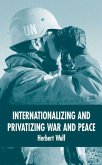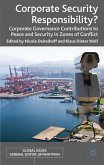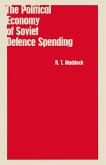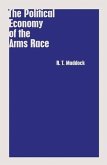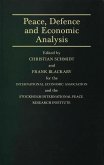In this timely work, the author analyzes the use of private military firms and international interventions of the military. Outsourcing to the private sector takes missions away from the military, but the shift towards international intervention adds new, wider functions to the traditional role of defence. If these two trends continue at the present pace, important security functions will be out of control of parliaments, national governments and international authorities. The state monopoly of violence - an achievement of civilization - is at stake.
'This is a fascinating book that brings the reader face to face with the changed security challenge in the post Cold War, globalizing world.' - Rt Hon Clare Short MP, UK
'At last we have a book about the privatization and internationalization of war that gets beyond the spectacular headlines coming from Iraq to develop a sound explanation and documentation of this rapidly evolving post-Cold War global phenomenon...a readable, thoroughly documented book complete with superb cases, examples and a reasoned set of practical recommendations. It is particularly strong in making us think through the utility of military force in countering terrorism. It will be required reading for all of my students preparing for global public policy careers.' - Edward J Laurance, Professor of International Policy Studies, and Director, Program on Security and Development, Monterey Institute of International Studies, USA
'At last we have a book about the privatization and internationalization of war that gets beyond the spectacular headlines coming from Iraq to develop a sound explanation and documentation of this rapidly evolving post-Cold War global phenomenon...a readable, thoroughly documented book complete with superb cases, examples and a reasoned set of practical recommendations. It is particularly strong in making us think through the utility of military force in countering terrorism. It will be required reading for all of my students preparing for global public policy careers.' - Edward J Laurance, Professor of International Policy Studies, and Director, Program on Security and Development, Monterey Institute of International Studies, USA


